Photo: Steve Granitz/WireImage/Getty Images
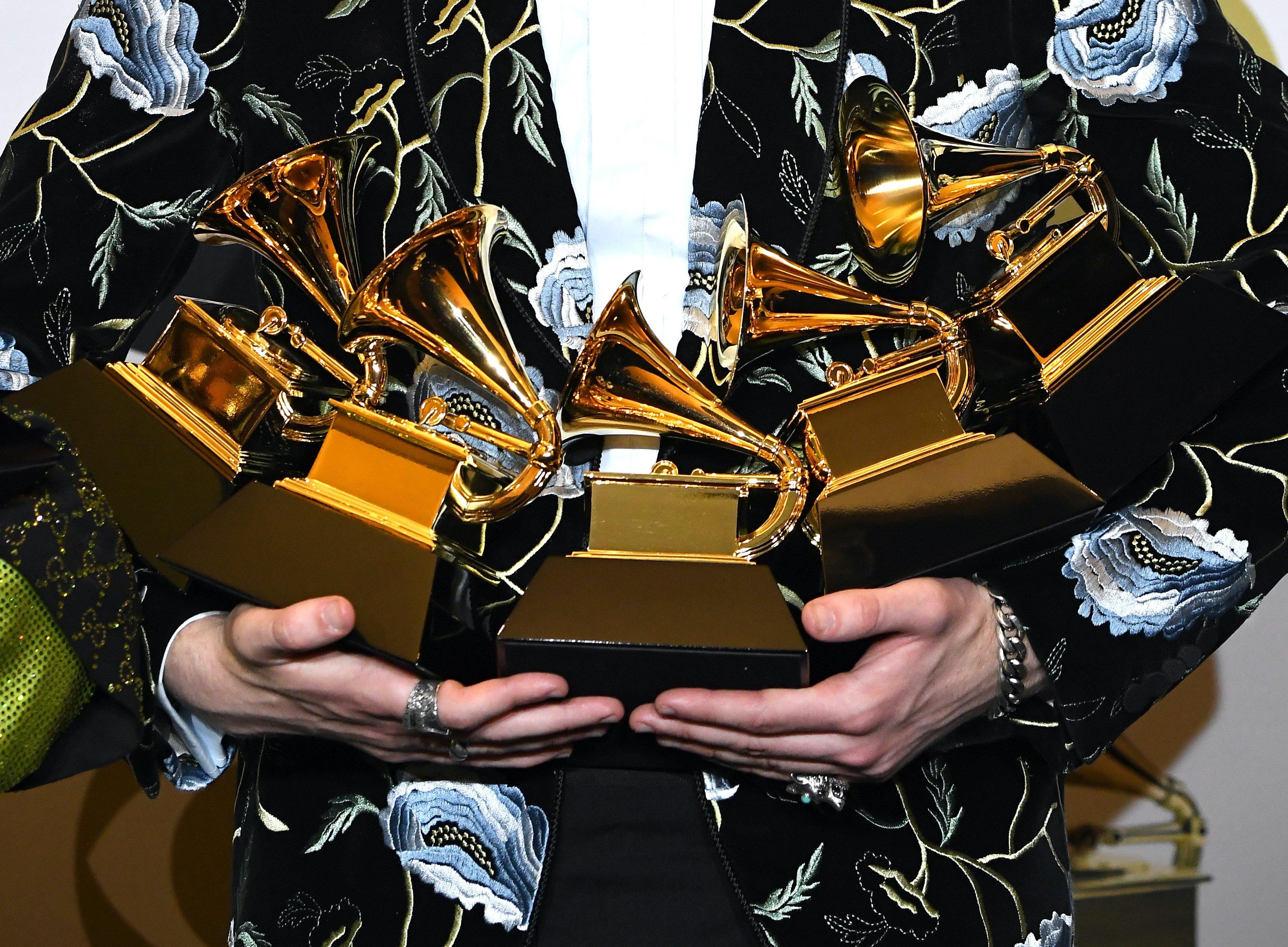
GRAMMY Awards
news
Find Out Who Has The Most GRAMMY Nominations, Which Categories Are All-Female & More: 2021 GRAMMYs By The Numbers
For the first time in the history of the GRAMMY Awards, every nominee for Best Rock Performance and Best Country Album is a woman or a group fronted by a woman
Now that the 2021 GRAMMY nominees have been revealed, let's take a look deeper across the categories to see which artists fared the best, who some of the first-time nominees are, who made history and more.
Beyoncé leads the pack this year with nine nominations, followed by Dua Lipa, Roddy Ricch and Taylor Swift, all tied at six nods. Brittany Howard follows with five nominations, with Megan Thee Stallion, Billie Eilish, DaBaby, Phoebe Bridgers, Justin Bieber, John Beasley and David Frost all tied with four nods.
As for Queen Bey, her nine 63rd GRAMMY Awards nods bring her total number of career nominations to 79, making her the most-nominated female in GRAMMY history. She is now tied with Paul McCartney as the second most-nominated artist of all time, only behind her husband JAY-Z (who received three nods himself this year) and legendary producer Quincy Jones, who both have 80 career nominations.
The pop/R&B icon has won 24 GRAMMYs to date, and if she wins at least four of her nine nominations, she will become the female artist with the most GRAMMY wins. If she wins eight or nine, she will be the highest number of GRAMMY wins of all time.
Inside The Song Of The Year Nominees | 2021 GRAMMY Awards
Both Stallion and Bridgers are first-time GRAMMY nominees and are in the running for Best New Artist. The Houston rapper's other three nominations come from her "Savage Remix" featuring Beyoncé, which is up for Record Of The Year, Best Rap Performance and Best Rap Song. The Los Angeles alt-rocker's other nods are for her sophomore solo album, Punisher, which is up for Best Alternative Music Album, and its second single "Kyoto," up for Best Rock Performance and Best Rock Song.
Notably, all nominees in the Best New Artist category are female and/or people of color—Stallion and Bridgers' fellow talented contenders are Ingrid Andress, Chika, Noah Cyrus, D Smoke, Doja Cat and KAYTRANADA. All of them are also first-time nominees.
Explore This Year's Album Of The Year Nominees | 2021 GRAMMYs
Other 2021 first-time nominees include BTS, Harry Styles, the Strokes, Poppy, Jayda G, Arca, Baauer, Madeon and Toro Y Moi, the latter five who are nominated in the dance/electronic categories.
For the first time in the history of the GRAMMY Awards, every nominee for both Best Rock Performance and Best Country Album is a woman or a group fronted by a woman. The nominees for the former are Andress, Brandy Clark, Miranda Lambert, Ashley McBryde and the group Little Big Town. For Best Rock Performance, the contenders are Fiona Apple, Bridgers, Brittany Howard, Grace Potter, sister trio HAIM and group Big Thief.
More entries than ever before were submitted for 2021 GRAMMY consideration, totaling 23,207.
Stay tuned to GRAMMY.com and our social channels (Twitter, Facebook and Instagram) for more 2021 GRAMMYs content, and tune in to the 63rd GRAMMY Awards on Sunday, March 14, on CBS to find out who the winners will be!
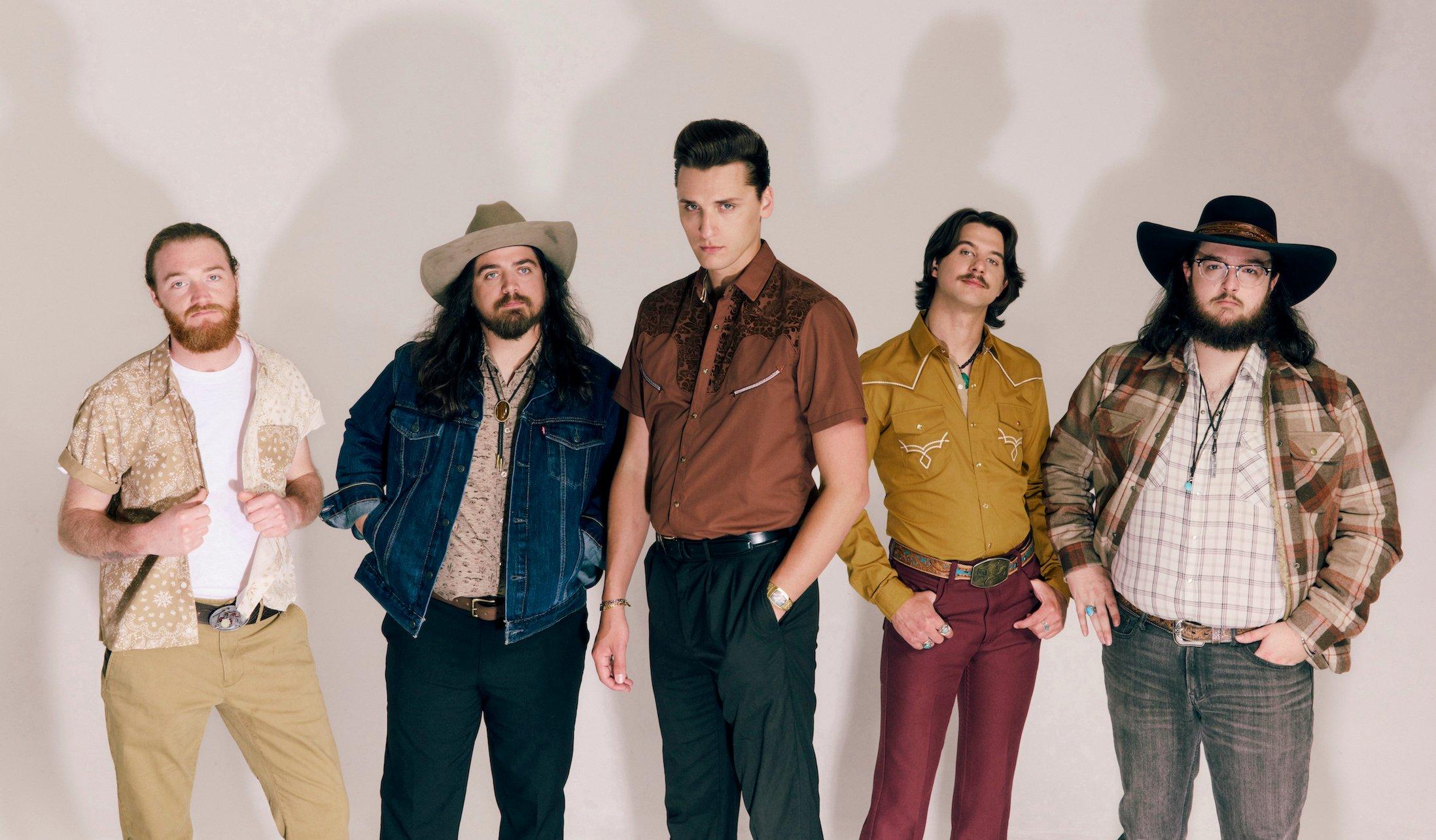
Photo: Robby Klein
interview
The Red Clay Strays Offer A New Kind Of Religion With 'Made By These Moments'
As the rising — and rousing — country group release their second album, the Red Clay Strays' Brandon Coleman and Drew Nix detail the hard-fought journey that's inspired them to deliver a hopeful message with their music.
Faith has been a driving force behind Alabama band the Red Clay Strays, both in their music and in their journey to stardom. With their new album, Made By These Moments, the quintet leans into that foundation even further, giving listeners a look into their walk with God and road to redemption — all of which has helped them become one of country music's most exciting breakout acts.
Despite the divine influence, lead singer Brandon Coleman insists they're not a Christian band. And their music proves that: The Strays' sound delves as much into high-flying Southern rock and gritty delta blues as it does country, sounding like Waylon Jennings or Johnny Cash one minute, then Lynyrd Skynyrd or Elvis Presley the next. As Coleman insists, what's most important to the group is making music that resonates.
"Most of the time we're not setting out to write a worship song… or anything like that," he tells GRAMMY.com. "We don't want to be a Christian band or even a country band — we just want to make music, plain and simple."
Born out of a cover band in 2016, The Strays grinded it out for years in bars around Mobile and the Deep South before hitting a breakthrough with 2022's independently released Moment Of Truth. Their budding acclaim led to opening slots with Elle King, Dierks Bentley, Eric Church and Old Crow Medicine Show, their first chart hit with "Wondering Why," and debuts on the Grand Ole Opry stage and on national television. And just one week before Made By These Moments arrived, the group were featured on the star-studded soundtrack for Twisters.
That all culminated in them signing with RCA Records in April 2024 and working with producer Dave Cobb, who helped the Red Clay Strays deliver their most polished and faith-focused set to date with Made By These Moments. Its 11 songs serve as a blueprint of how with hard work, patience and God in your corner no obstacle is too big to overcome. The band navigates everything from questioning oneself ("No One Else Like Me") and searching for purpose ("Drowning," "Devil In My Ear") to discovering and becoming grounded in faith ("I'm Still Fine," "On My Knees") and growing into the best version of yourself as a result ("Made By These Moments," "God Does").
"We're not trying to go out and preach to anybody, we're just singing songs about our lives and people can listen if they want," Coleman asserts. "I've had many people who aren't spiritual or religious come up to me and say that our music has gotten them to think and reevaluate how they go about their daily lives. That's all you can ask for if you're trying to inspire or help people with your music."
Before the release of Made By These Moments, The Strays' Brandon Coleman and Drew Nix spoke with GRAMMY.com about how faith influences their music, the album's range of inspirations, and more.
You guys haven't shied away from making your faith a focal point of your music. Mind telling me about the roots of that influence, particularly with how it relates to the 11 songs on this new record?
Brandon Coleman: I mean, God's really the driving force in all of it. He's why we do this. Everyone's wondering why they were put here on Earth and what their purpose is. Once you're able to get an idea for what that is, that's often what you end up doing. Our music is about our lives and living on the road, and God is a big part of all of it.
Drew Nix: When God gives you a gift you have to use it or it's wasted, right? The biblical things we talk about in our music are lessons that we've learned growing up. It's such complex and simple truths all wrapped into one, which makes it really easy to write about. There's victory and strife and everything else you go through in life. It leaves us thanking God at the end of each and every day for giving us another one.
It sounds like rather than faith seeping into music that it's simply been ingrained in your DNA long before you started making music?
Coleman: Exactly. We're always looking to put God above ourselves.
Nix: When I'm writing songs like "Drowning" — a song that came about when I felt like I couldn't get ahead in life because I kept slipping and falling — it's very therapeutic too.
Another example is "Devil In My Ear," which sees me dealing with a close friend and someone I considered to be family's suicide. It was our drummer's brother Jacob, who was an unofficial member of the band and one of the best musicians we knew. He took his own life in 2020, so that song was me trying to deal with that. The only thing I could come up with at the time was that the devil got in his ear because he really had it made — he was an incredible musician with a loving family around him. It just didn't make any sense to me until writing that song.
I obviously hate to hear that, but at the same time I firmly believe that one of the most beautiful things about music is the positivity that can radiate from even the most tragic of circumstances. It's a way to make others who've gone through similar experiences feel seen and not alone, easing the weight of the trauma that comes with it in the process. "Devil In My Ear" is a perfect example of that.
Nix: Not feeling alone, that's a huge part of it. On a related note, the song "Made By These Moments" touches on exactly what you're talking about. We go through all these horrible and beautiful things in our lives that make us who we are. It's also one of the songs that finally brings up the mood on the album as well.
Coleman: That's the beauty of this album. It starts out great a lot of times like life does. It starts with a good rock song before taking you down into the dark places that we all go to with "Drowning" and "Devil In My Ear." Then you come out of that with "I'm Still Fine" realizing "Oh crap, I'm down in the valley but I'm still fine because God's still got me" ahead of rejoicing with "On My Knees," and realizing that getting through all these bad things is what makes us stronger with "Made By These Moments." Closing out the album with a perfect ending is "God Does," a gentle reminder that even though you may not think something is possible, God does.
It's like a roller coaster ride to redemption.
Coleman: Addiction and survival, too — all of it.
You mentioned "Drowning" a moment ago, which is one of my favorites on the record due to both its message and Brandon's high-powered vocals — particularly during its chorus — that remind me a lot of Chris Stapleton. It's a little bit country, blues and rock with a heck of a lot of emotion.
Coleman: Thank you. "Drowning" was originally written in A, so we were singing the chorus, but it wasn't quite up there note wise. I felt like we had a lot of room to keep going up, so we walked it up to a C so it has more of that screaming vibe to it, which definitely helped the song.
It feels fitting and reminds me of when we were struggling in 2020 and 2021 and were driving for Uber. I finally scraped up $100 to get my car's oil changed. It was supposed to be free, but the place ended up charging me a $40 fee before convincing me to buy new air filters too, to which I said "go ahead" because I just can't say no. What was a $15 air filter I ended up getting charged $75 for, taking my would be free oil change up over the $100 I'd just saved up.
I remember leaving there, going back home and kicking this drawer that I'd picked up on the side of the road. I ended up breaking it and screaming at the top of my lungs, and that's what the big notes in the chorus of "Drowning" remind me of.
If it makes you feel any better I literally got my car's oil changed this morning and they got me on the upcharge for an air filter too.
Coleman: It does, but it hits a lot different when you only have $100 to your name.
Absolutely. And thankfully that's something y'all aren't having to deal with anymore. What a difference a couple years can make!
Coleman: Even going through all that, despite how hard it was, we were never hopeless. We all just looked at it as going through a battle. We still had faith in God all the way, even when it was very hard to, which was very scary and stressful. People always say to never quit and to never give up, and that's turned out to be true for us too.
That leads me to "God Does." There's a lot of rockin' tunes on this record, but that song stands out from the rest, both in its message and the stripped back format you recorded it in. Was it always your plan to compose it like that or did you ever have a plan to give it a similar treatment to the rest of this project?
Coleman: I can't speak for Drew, but that was always my idea of how it would be. Working with Dave, he has his ideas too, and in the studio they all mesh together as we figure out and create it. He changed the whole beat up on ["God Does"] and gave the song more of a waltz-y feel that completely transformed it for the better, in my opinion.
Nix: I had a country-er imagination for it when I wrote and demoed it. I bought a pedal steel about a year ago to have it go more of the country route, but the way it turned out is better than I ever imagined.
Coleman: I like the way Drew came up with it, too. I actually still have that work tape on my phone because I remember how that song helped me out during that time of uncertainty and struggling. We played a show in Baldwin County [Alabama] somewhere and were using Jacob's old bus because our's was broken down. One of its tires went flat, so we had to leave it at the venue. Drew and I returned the next day to change the tire so we could get home. It was then that Drew told me about this new song he'd just written called "God Does."
I don't know if he knew, but I was sitting there just trying to hide my tears as I listened to it because of being in that time of life of not knowing what to do and feeling hopeless. That song came along at a very good time and really changed my trajectory mentally.
Latest News & Exclusive Videos

2024 Paris Olympics Opening Ceremony: Watch Celine Dion, Lady Gaga, Gojira & More Perform

Ice Spice Is The Drill Queen On 'Y2K!': 5 Takeaways From Her Debut Album

New Music Friday: Listen To New Songs From Halsey, MGK And Jelly Roll, XG & More

Watch Young MC Win Best Rap Performance In 1990

The Red Clay Strays Offer A New Kind Of Religion With 'Made By These Moments'
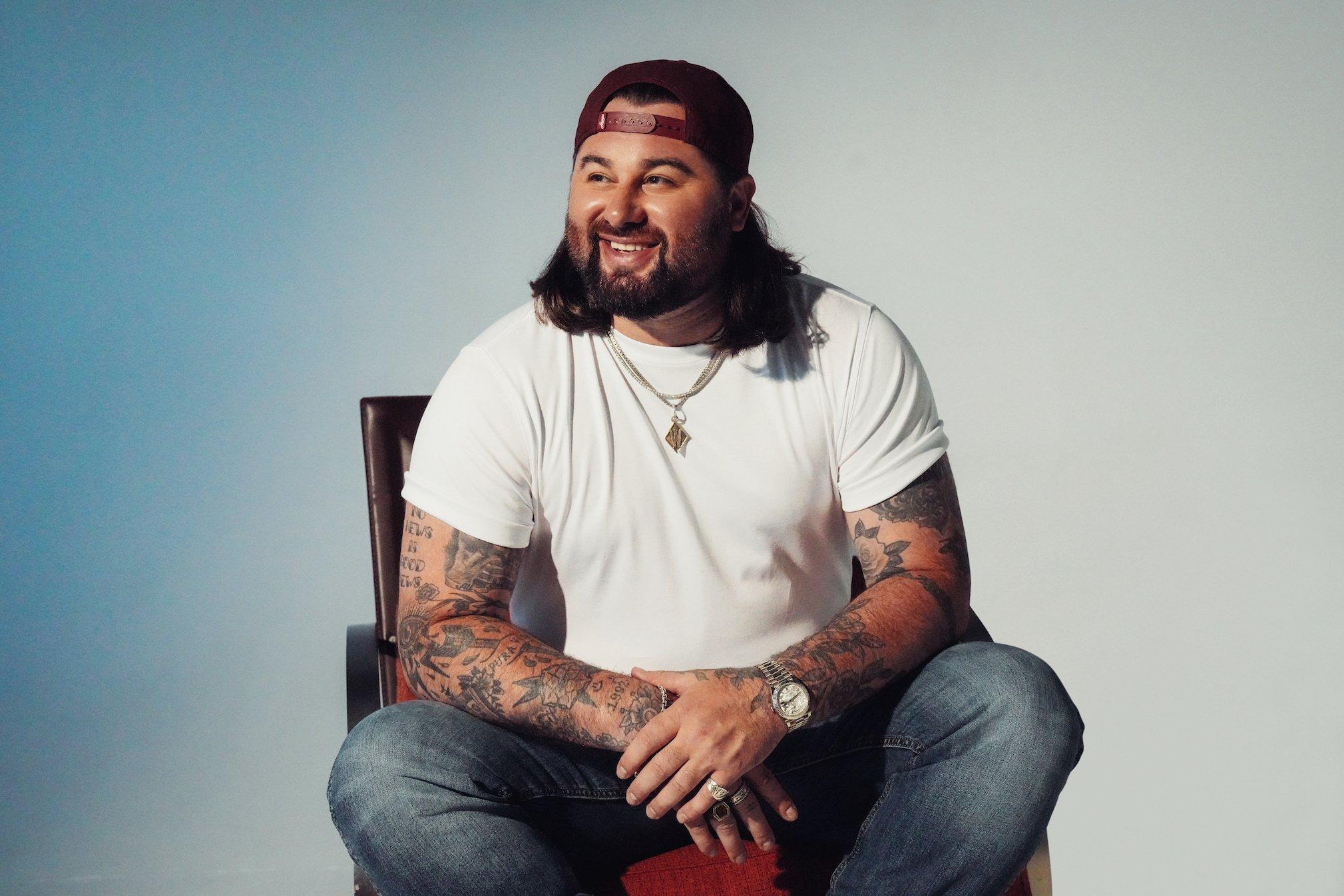
Photo: Jody Domingue
interview
Koe Wetzel On How New Album '9 Lives' Helped Him Tap Into His Feelings
After establishing himself as an outlaw country act, Koe Wetzel wanted to dig deeper with his fifth studio album. The buzzy star details how new collaborators and unintentional therapy helped him show a new side of his artistry.
The word "rabid" may often be tossed around in conversations about fan bases, but Koe Wetzel's die-hard followers truly deserve the distinction. A quick search of the Texas-born singer/songwriter's fans reveals videos of Wetzel breaking up audience fights, arguments over featured vocalists and many, many Koe-inspired tattoos.
So, what is it about the 32-year-old country star that gets people so riled up? For starters, Wetzel, like Zach Bryan or Cody Jinks, is an outsider in the genre. He found his footing and honed his unorthodox sound — which defies traditional genre conventions to include influences from hard rock and hip-hop — as part of the Texas music scene rather than on Nashville's Music Row, the genre's commercial epicenter. Wetzel debuted in 2015 with Out on Parole, an album released under the name Koe Wetzel and the Konvicts. That record and its follow-up, 2016's Noise Complaint, made Wetzel a star on the college touring circuit, and by the time 2019's Harold Saul High was released, he was charting on Billboard while fielding management and label offers.
Wetzel's rough-and-tumble persona is another draw. He's outlaw country in his music and in life, with the Feb. 28 date of his 2016 arrest for public intoxication now known as "Koe Wetzel Day." He's known for working hard and partying harder — though, as he tells GRAMMY.com, he hopes to soften that image with his new album 9 Lives, out now.
As Wetzel puts it, at the heart of his gritty, irreverent persona is "just a goofball" who "probably should" go to therapy more often. Accordingly, his songwriting on 9 Lives is his most vulnerable to date, mingling meditations on fame and mental health with party anthems and hardscrabble tales of life on the road. Produced by Gabe Simon (Noah Kahan, Lana Del Rey), the record takes the gritty, rough-hewn country rock of Wetzel's earlier releases and lets it breathe a bit, adding touches of pop and roots to his grunge-leaning, hip-hop inspired beginnings.
Highlights on the record include the gritty and groovy title track and "Bar Song," a hypnotically infectious ode to a wild night out; "Leigh" shows off Wetzel's comedic side, as he playfully laments falling for "girls with names ending in Leigh." He also includes two drastically different covers: "Depression & Obsession" by late rapper XXXTentacion, and "Reconsider" by Keith Gattis, a country singer/songwriter who died in 2023 — further proof that Wetzel is anything but your typical country artist.
On the album's July 19 release, Wetzel chatted with GRAMMY.com about his switch-up with 9 Lives, from recruiting a new producer to covering a rap song and more.
It's rare to speak to an artist on an album release day, so I'd love to hear how your day is going and what the feedback from your fans has felt like so far.
I'm just glad that everybody's taken [the album] in the way I wanted them to, you know? I didn't know how people were going to react to it, because it is a little bit different from the sound that we put out before. But the reaction has been great. I think people are getting a little bit more of a feel for the stuff that we put out in our earlier years.
Your fan base is so passionate, and it seems like they are also really open to you taking risks and hearing new sounds from you. Does that resonate with you?
Yeah, for sure. It's not that they were getting used to the same sound we had been putting out for the last couple of records, but I felt like they were wanting something a little different than the country rock stuff. And I think with this record, we give them that. We're giving them something that they haven't heard from me before.
Take me back to the early days of plotting this record. What got the ball rolling for you?
Well, we really didn't go into it expecting it to be a full record. We hadn't put out music in a while, so we went into it with [the goal of] get[ting] a couple singles out, just to get stuff going for a record, possibly, in the future. I hadn't put out my music in almost two years at that point. And so, the idea was to go in and write some newer stuff. I knew the direction that I wanted it to go — a little bit softer, more honest, vulnerable route.
We got in [the studio] with Gabe Simon and Amy Allen and Carrie K and Sam Harris in El Paso, and we were there for, I think, two or three days. We wrote four songs: "Damn Near Normal," "Sweet Dreams" and a couple other tunes. We kind of sat back and looked at everything, and it all came really easy for us.
We looked back like, "All right, man, this sounds great. We should do it again." So, we hooked back up in Nashville at RCA, and we knocked out a couple more. I think we did four or five more songs in a couple of days there. Before we knew it, we're like, "Man, we got a whole record in there." It wasn't planned at all.
It must feel good to go in without any major expectations and come out of the studio with music that fits your vision.
Yeah, for sure. Gabe Simon — he really brought that out. It was my first time working with him. It was kind of scary, going in to write and work with somebody that you've never met before and being so open and honest with them. He pulled out everything that made all those songs [right for] the record.
It sounds like the two of you have a special creative partnership. What do you think it is about your work with Gabe that made him the right fit for the record?
One thing is just us coming from two different worlds. I'm a Texas guy, and he's coming from Nashville. It's just those two worlds colliding, pretty much. And he really cared about me and cared about my life, — things that are going on in my life instead of just being about the music. He cares about my well-being. We're friends now, and he'll hit me up on any given day and ask, "How you doing? How you feeling?" It has nothing to do with music. That's the type of dude Gabe is.
I think that played a big part in this record. Of course, he cared about the music, but he also wanted everybody to understand the stories that were being told.
You mentioned earlier that you get into more vulnerable territory on this record. What was it like for you to open up in that way in your music?
Honestly, it was kind of freeing. I don't go to therapy as much as I probably should. And I've said this a couple of times, that when I first met Gabe and Amy and all them, they all sat me down and picked my brain, just trying to get song ideas and [figure out] which way I wanted to go with the record. I always say that was my first real therapy session. And it was total strangers.
I don't talk about my feelings and stuff as much as I probably should, so whenever I get to write this music and play this music, that's pretty much how I express how I feel.
On the other end of the spectrum, you're great at incorporating humor into your songwriting. On this record, I'm particularly thinking about "Leigh," which is just so clever. What role does humor play in your writing process?
I'm a goofball. [With] my persona, people want to think I'm just this hardass, kind of outlaw dude, but I'm really just a goofball. I like to have a lot of fun. I like my records to have a lot of fun. So throwing in songs like that to keep people on their toes, you know, it's just to let them know it's not always so serious. It's a lot of fun and games.
We had a lot of fun making that song. At first, it kind of started off as a joke, and then we kind of sat back like, "Holy s—, this is pretty good. This is a fun song." We can't wait to play that one.
The two cover songs on the record fit so well, even though they are from drastically different artists, XXXTentacion and Keith Gattis. How did you choose those, and what made them fit the rest of 9 Lives?
Keith Gattis, I didn't really get to know him or do a deep dive into his music while he was alive. He passed away last year. And Charlie Robison was one of my favorite Texas artists growing up. They passed away pretty close to each other last year.
Once I figured out that Keith wrote a lot of Charlie's songs, I really dug into his music a lot more… Something inside me was just like, "Yo, you gotta cut this song." I feel like it rounded out the record. We just tried to do it as much justice as possible.
[It was] kind of the same with "Depression & Obsession." XX is one of my favorite underground rappers. I love that era of music. I love what he did. He was another artist that was gone too soon. There's no telling what more we could have gotten from him. So, I wanted to do it justice and give a nod to them by putting those songs on the record.
You have Jessie Murph joining you on "High Road." How did the two of you connect?
Ron Perry with Columbia, he signed her a couple years ago. When we signed with Columbia, he asked if I'd heard of Jessie Murph. I wasn't familiar with her at the time. Then I looked her up and instantly became a fan. She's a f—ing superstar. Her voice is amazing.
We talked about having a duet on this record, but I couldn't find a singer that I wanted to have on the record. But it was kind of easy because Jessie worked with Columbia and, like I said, I was a huge fan. So, we hit her up. We let her put her own spin on it, and she absolutely crushed it.
You're certainly busy enough, with a new record out and a tour coming up. What else are you looking forward to in the second half of 2024?
More new music. We're already trying to get more new music going. We've got a lot of songs that are still in the vault that probably should have made the record but it just didn't feel right at the time. I can't really say a whole lot, but we've got a lot of songs in the vault and I'm still writing. So, once the tour's over with, we're hoping to put on some new music pretty quick.
Latest News & Exclusive Videos

2024 Paris Olympics Opening Ceremony: Watch Celine Dion, Lady Gaga, Gojira & More Perform

Ice Spice Is The Drill Queen On 'Y2K!': 5 Takeaways From Her Debut Album

New Music Friday: Listen To New Songs From Halsey, MGK And Jelly Roll, XG & More

Watch Young MC Win Best Rap Performance In 1990

The Red Clay Strays Offer A New Kind Of Religion With 'Made By These Moments'
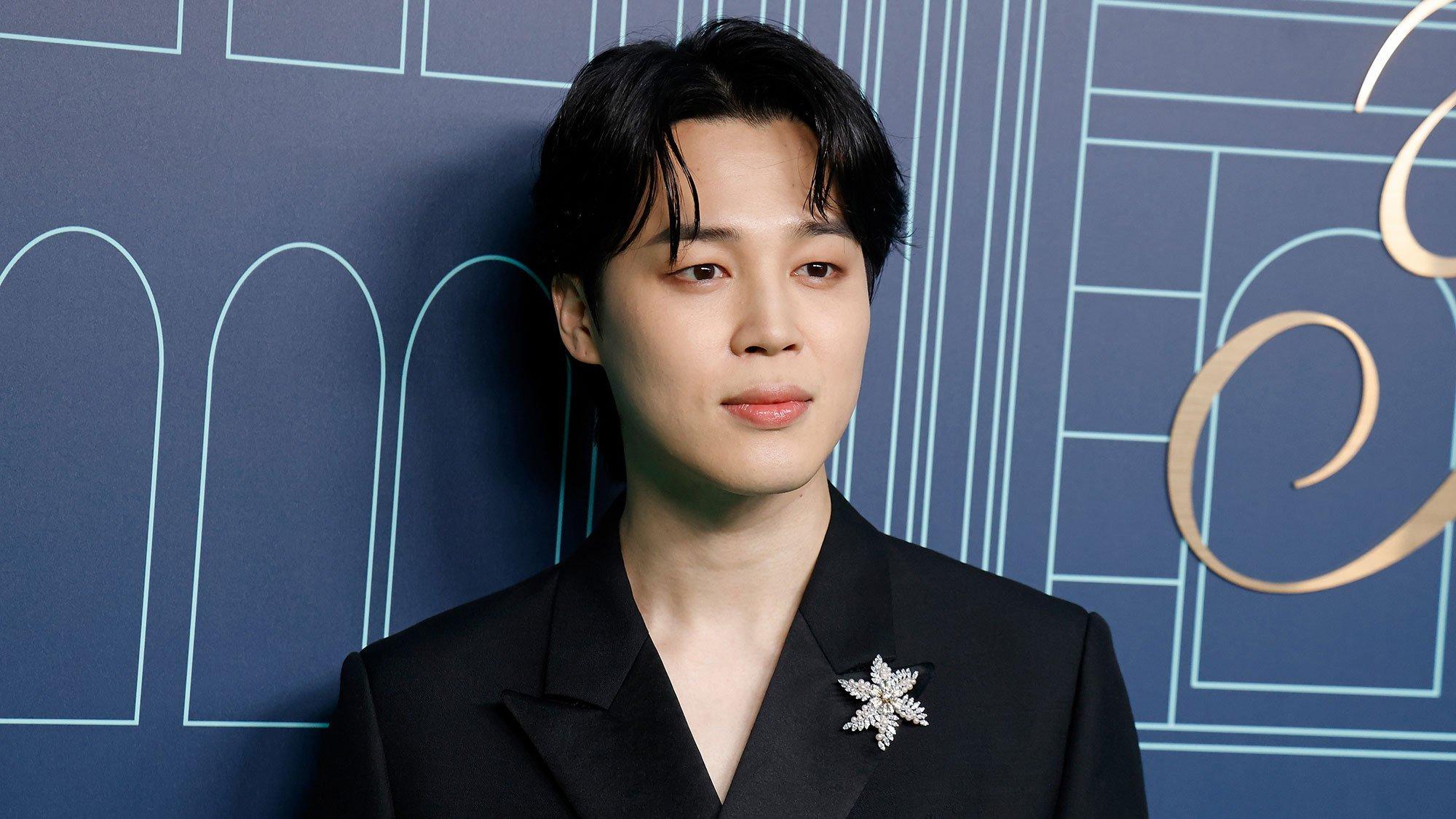
Photo: Taylor Hill/Getty Images
list
5 Takeaways from BTS Jimin's New Album, 'MUSE': A Bold Exploration Of Love And Inspiration
Jimin's second solo project, 'MUSE,' showcases his artistic growth and versatility, featuring a blend of nostalgic sounds, personal reflections, and standout collaborations.
K-pop juggernauts BTS are still on hiatus due to military enlistments, except for Jin, who was discharged last month. Yet, all members remain booked and busy in their solo endeavors.
Documentaries, travel shows, special singles — you name it, they carefully prepared it before starting their duties. And after new records from j-hope (HOPE on the Street) and RM (Right Place, Wrong Person) this year, the next in line is Jimin, who dropped MUSE today.
The album comes almost a year and a half after his debut EP, FACE, which placed Jimin as the first South Korean soloist to top Billboard's Hot 100 chart. In it, the Busan-born star proved his versatility and prowess standing on his own, captivating audiences old and new with his sensitive charisma.
In MUSE, Jimin introduces a new facet of his musical identity: bolder and more confident, but still a big softie at heart. To celebrate the beginning of a new era — and to ease the wait until his discharge next year — here are five key takeaways from Jimin's latest release, MUSE.
It's Another Jimin-Led Production
FACE was a proper introduction to Jimin's artistic vision, with him contributing to every aspect of the project and co-writing all of its tracks, minus the instrumental "Interlude: Dive."
Now, he takes it up a notch for MUSE, showcasing his growth by co-writing six out of seven tracks, and co-producing two of them: "Rebirth" and "Interlude: Showtime." Once again, Jimin had a hand on all of the album's components, including its concept and visuals, and bore down another layer of his ever-evolving skills.
If FACE introduced us to a vulnerable and sometimes desperate Jimin, MUSE charges forward with main pop boy energy, tender but commanding, sweet but sassy. It works both as a gift to fans and a tool to get to know Jimin even deeper.
He’s Still In Search Of His Muse
"We never met, but she's all I see at night/ Never met but she's always on my mind/ Wanna give her the world/ And so much more/ Who is my heart waiting for?" Jimin sings in MUSE's track, "Who." As the lyrics suggest, MUSE's main theme is Jimin's journey to find the source of his inspiration — his muse.
The album's seven tracks are all interconnected by love and longing, with Jimin searching for the one but getting lost in the way, and back at it once more. Through this perspective, he continues his path of self-discovery. After looking at his own FACE in the mirror, who else does he see? Who else instigates him enough to make art?
A Stellar Team Backs Up The Effort
To write and produce MUSE, Jimin enlisted longtime collaborators Pdogg, Ghstloop, Evan, and Supreme Boi. They have also been working with BTS for years, and know just what Jimin wants and needs in his songs.
But to make this album even more special, Jimin also collaborated with a fresh crop of professionals. Lead single "Who" was co-written and co-produced by Jon Bellion, Pete Nappi, and Tenroc, while Ayo the Producer and Kofo co-signed the fan-dedicated "Closer Than This." OneRepublic's Ryan Tedder helped pen "Be Mine," and Tommy Brown has writing credits on "Rebirth" and "Smeraldo Garden Marching Band (feat. Loco)."
Aside from Korean rapper Loco, MUSE also features American actress and singer Sofia Carson on the smooth duet "Slow Dance." Together, these names assembled a cohesive, yet diverse LP, brimming with influences from several decades, genres, and countries at once.
The Smeraldo Flower Makes A Comeback
Back in 2017, when BTS was in their LOVE YOURSELF era, they also introduced to their lore a fictional blue flower named Smeraldo. Symbolizing "a truth that cannot be told," its legend was better explored in the track "The Truth Untold (Feat. Steve Aoki)," and offered important clues to understanding that era's messages.
However, as years passed, the Smeraldo flower was largely forgotten from BTS's new works — until MUSE. Here, Jimin brings back the blue flower as one of the albums' visual concepts, and as the main motif behind pre-release "Smeraldo Garden Marching Band (feat. Loco)."
According to a press statement, the track's lyrics "express the longing to confess and find love on behalf of those unable to articulate their feelings," hence the use of Smeraldo. As for its curious title — loosely inspired by The Beatles' 1967 album Sgt. Pepper's Lonely Hearts Club Band — it came first as a casual nickname between Jimin, Pdogg, Ghstloop, and Evan while they worked together on FACE, and eventually became real.
It’s Packed With Nostalgia
If you miss Justin Timberlake's Justified sounds and other early-2000s gems, MUSE is here to take you on a nostalgic trip. Inspired by pop, R&B and hip hop from that era, Jimin gave his latest album a vintage, cozy veneer.
These references are predominantly visible on "Who" and its delightful guitar strums, but "Slow Dance (feat. Sofia Carson)," for example, sounds like an updated version of Usher and Alicia Key's "My Boo," and "Be Mine" could be the 2020's lovechild of Santana's "Maria Maria" and Sean Paul's "I'm Still In Love With You."
Another strain of references can be seen in "Smeraldo Garden Marching Band (feat. Loco)," which extends The Beatles' inspiration to experimental samples and marching band percussion, and creates a quirky piece that strays away from any current trends. "Interlude: Showtime" drinks from the same source, featuring a circus brass and drum line that introduces us to the singularity of "Smeraldo Garden."
While infused with nostalgia, MUSE still appeals to today's tastes, and offers a seamless, polished listen. It stands as a testament to Jimin's artistic growth, and while he might not have found his muse yet — he is certainly a source of inspiration for many.
More BTS News
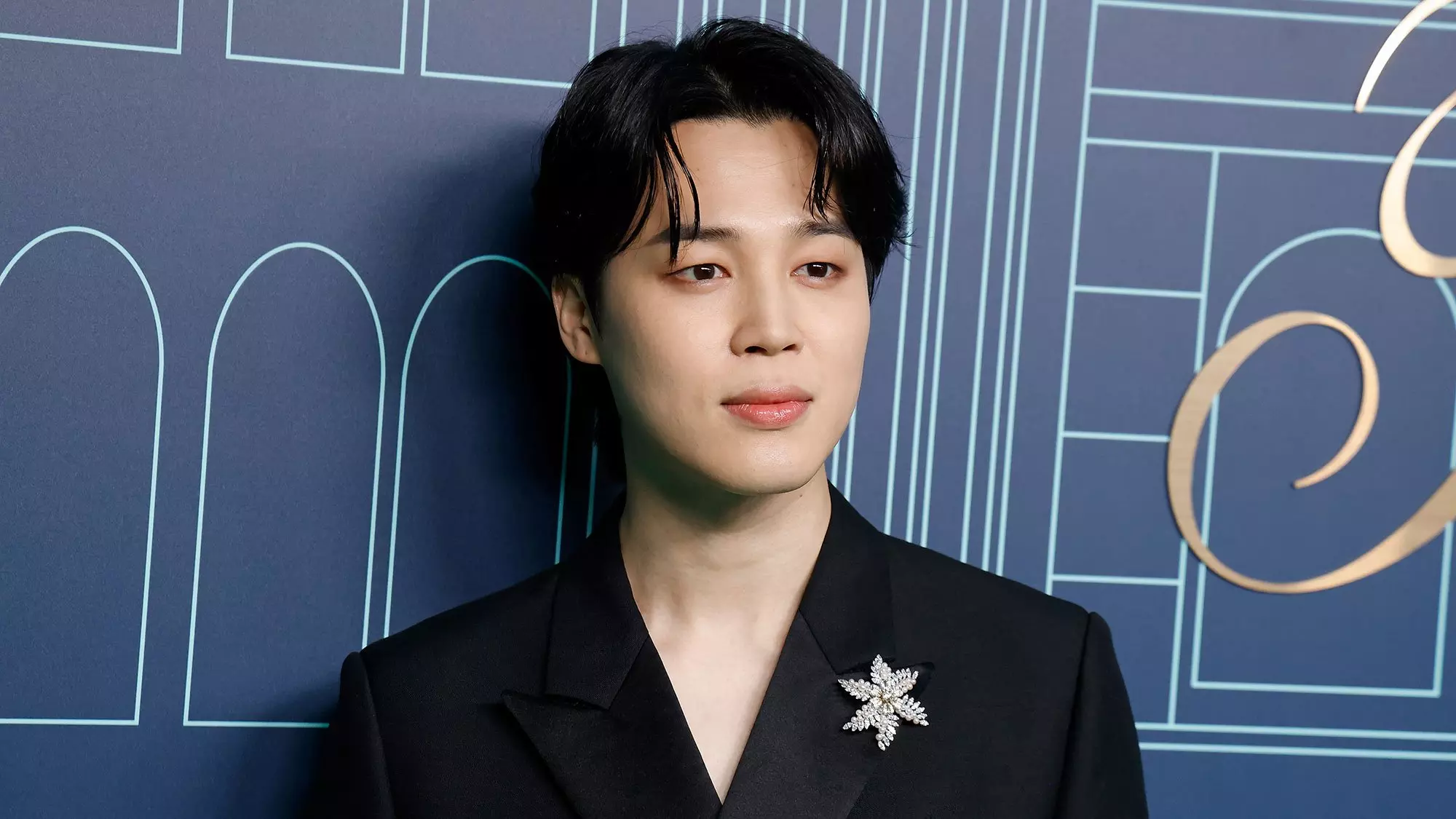
5 Takeaways from BTS Jimin's New Album, 'MUSE': A Bold Exploration Of Love And Inspiration

GRAMMY Museum Partners With HYBE For New K-Pop Exhibit 'HYBE: We Believe In Music' Opening Aug. 2
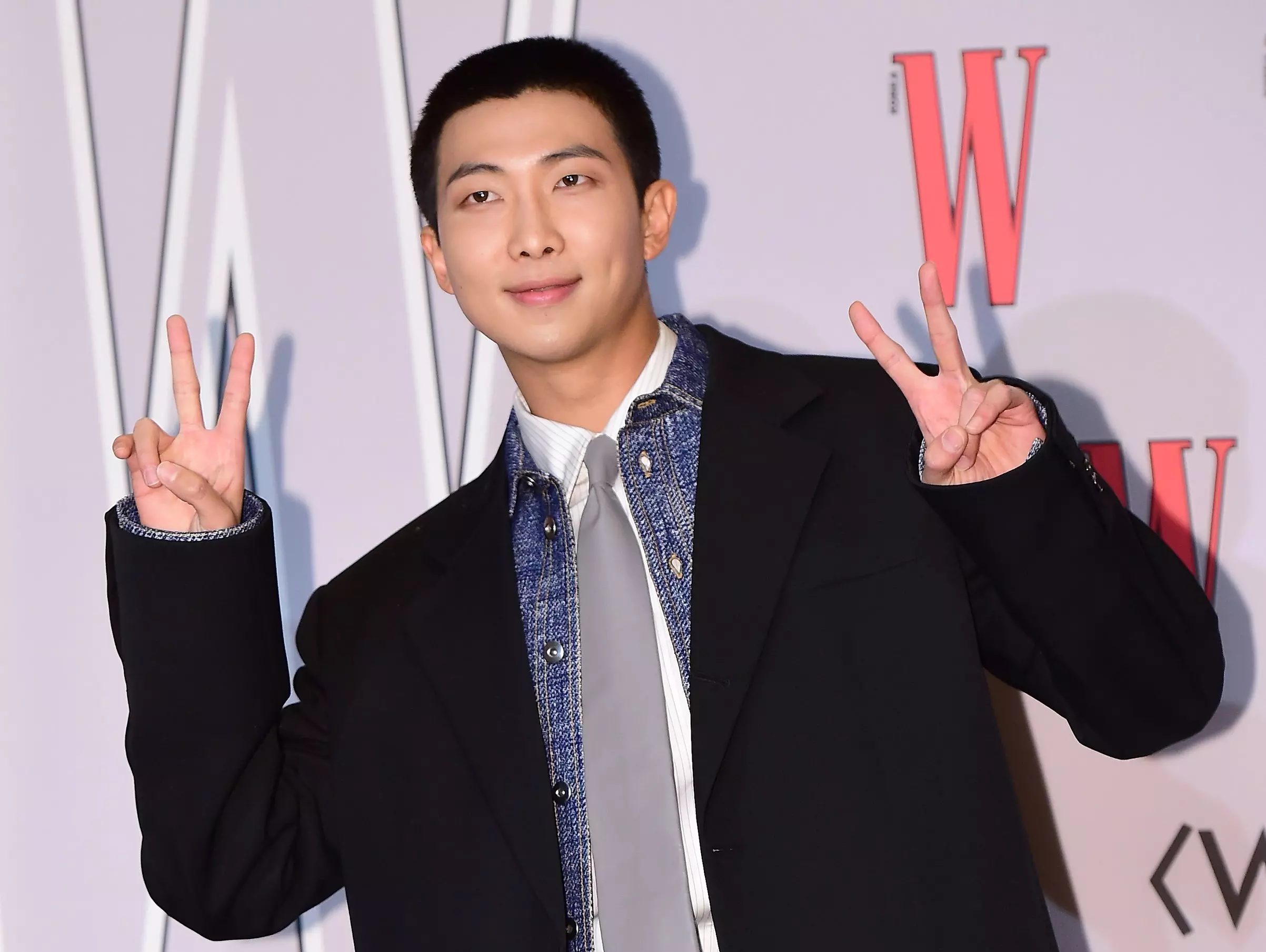
Stream RM's New Album 'Right Place, Wrong Person': See The Tracklist, "LOST!" Video & Special Guests
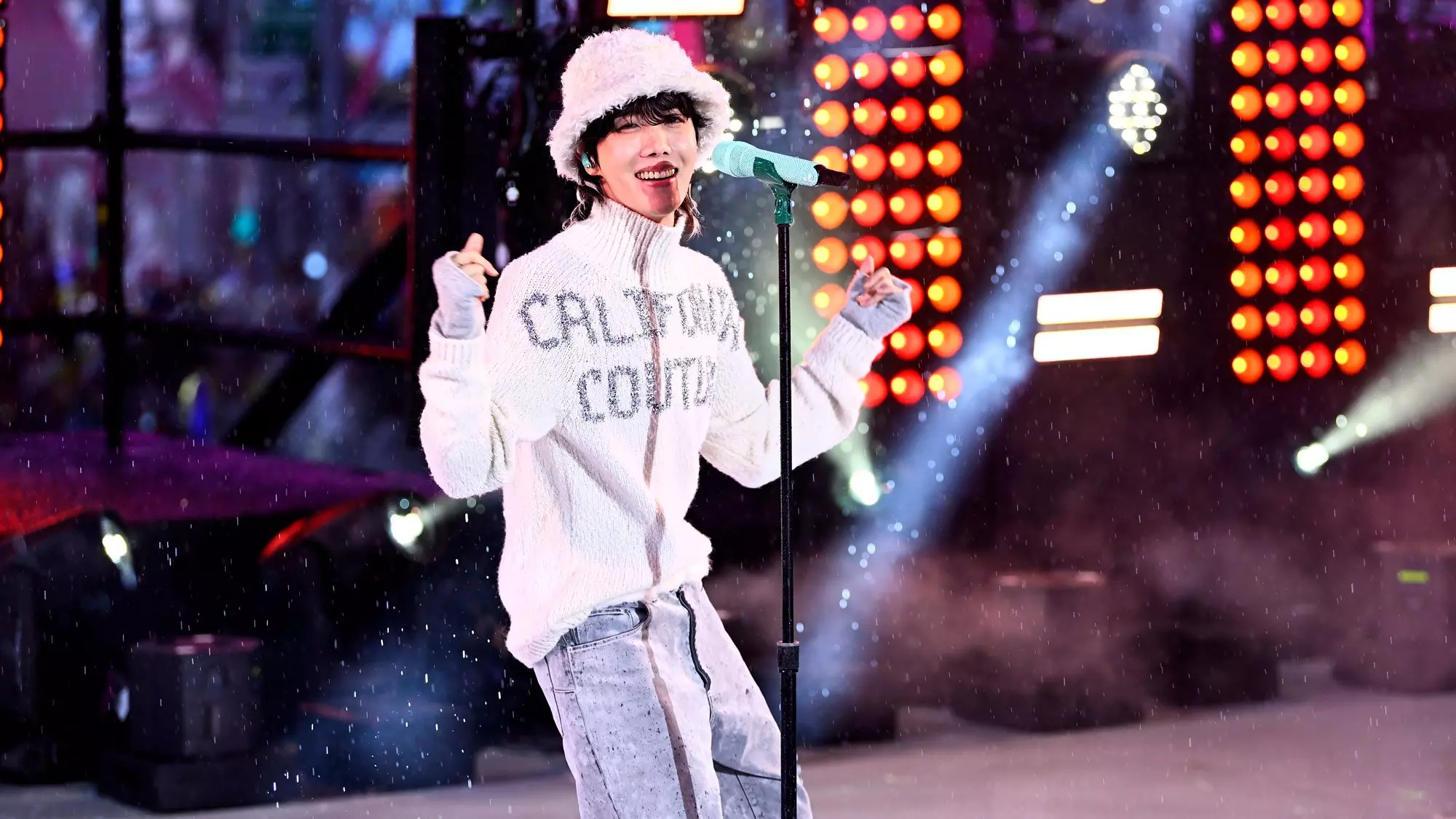
J-Hope's Road To 'Hope On The Street Vol.1,' From Falling Back In Love With Dance To Tying Together His Global Influences
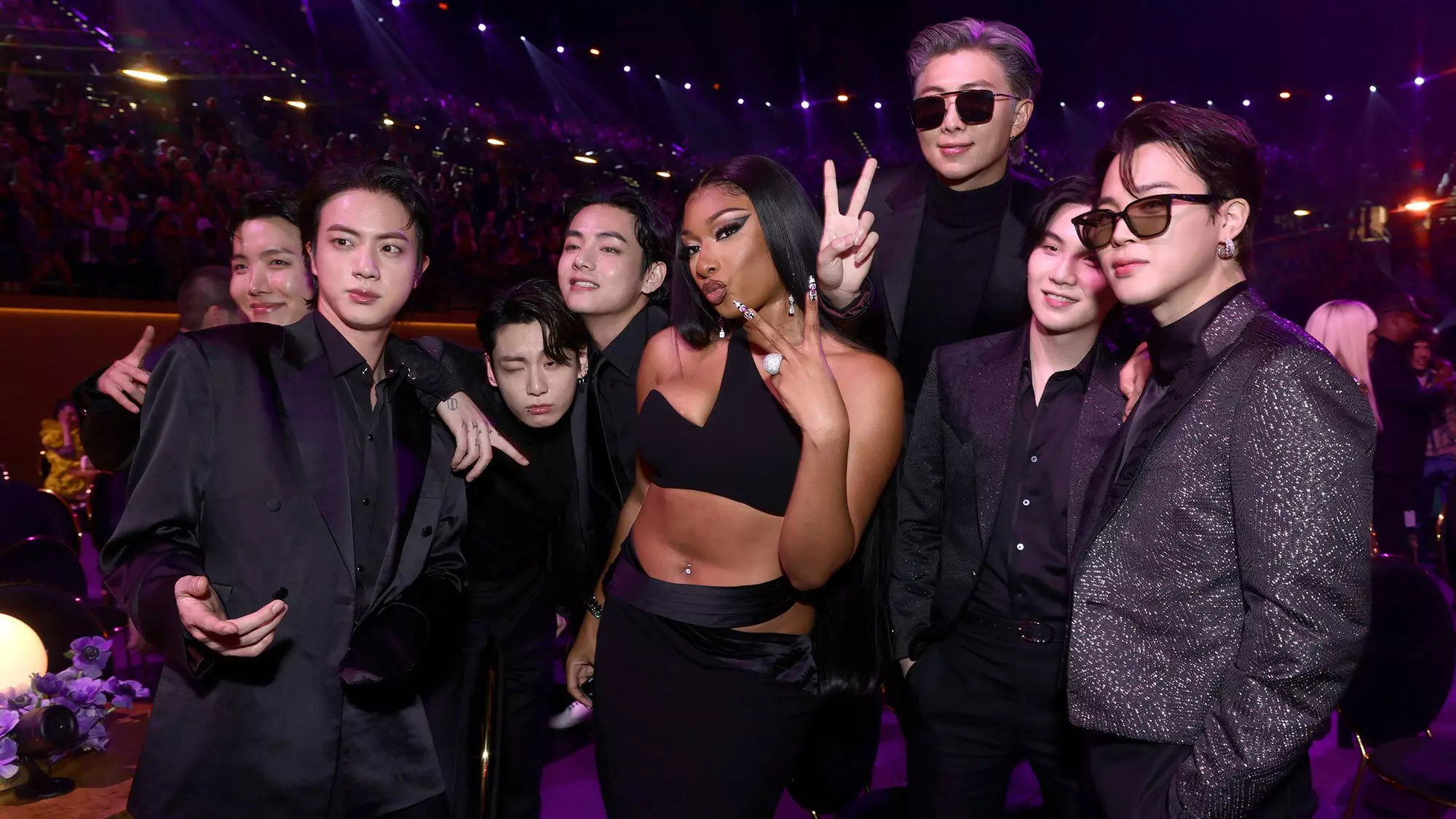
9 Essential K-Pop/Western Collabs: From BTS And Megan Thee Stallion, To IVE And Saweetie

Photo: David O’Donohue
list
Meet Amy Allen, The Hitmaking Singer/Songwriter Behind Sabrina Carpenter's "Please Please Please" & More Pop Gems
Amy Allen has penned hits for stars like Halsey, Harry Styles, and Tate McRae, including two recent smashes from Sabrina Carpenter. As she embarks on her own artist journey, learn more about the GRAMMY-winner's already dazzling career.
Some artists are lucky enough to have a moment: a song of the summer, a radio hit, or a point at which their song dominates the pop conversation. Before even launching her own singing career, Amy Allen has done just that — multiple times.
In 2022, the Maine native contributed to hit songs from Harry Styles, Lizzo, Charli XCX, and King Princess; at the 2023 GRAMMYs, she was one of the inaugural nominees for Songwriter Of The Year, Non-Classical, and celebrated an Album Of The Year win alongside Styles thanks to her work on Harry's House. And as of press time, two songs she co-wrote with Sabrina Carpenter are in the top 10 of the Billboard Hot 100 chart: "Espresso" and "Please Please Please," the latter of which hit No. 1.
When you have a resume and catalog as impressive as Allen's, it's hard not to get stuck in a run of highlights — but Allen's writing style is so full of remarkable emotional depth and inevitable hooks that her life and career deserves further exploration. After binging on classic rock and performing in rock and bluegrass bands in her youth, Allen began writing songs for others in the mid 2010s and has only continued to expand her impact on audiences and collaborators alike.
"Amy is a once-in-a-lifetime writer and friend — it all comes to her very naturally and effortlessly," Carpenter recently told Variety. "She's super versatile: She can wear any hat and yet it still feels authentic. I've learned a lot from her and admire what an incredible collaborator she is."
Along the way, Allen has continued honing her skills as an artist in her own right, releasing a handful of EPs and singles since 2015, initially under the name Amy and the Engine. But on Sept. 6, she's ready to fully introduce herself with her debut album — fittingly titled Amy Allen.
Just after Allen celebrated her latest No. 1 and released her newest single, "even forever," GRAMMY.com rounded up the key details you need to know about the singer/songwriter's diverse musical background, from her advocacy for female creators to seeing Harry Styles sing a song she co-wrote to a massive audience.
Her Origin Story Features A Lot Of Car Talk
Allen's early musical growth relied on four-wheeled vehicles to drive the plot forward — in many different forms. Growing up in rural Maine meant long car rides to for school and family outings, which in turn meant a lot of time with the radio.
"My dad is the biggest classic rock fan, so since I was little, I spent hours every day listening to music in the car with him and my sisters," she told Variety earlier this year.
When it came time for one of her sisters to start a band, the elder Allen named it No U-Turn, setting the theme. When the band needed a new bassist, Amy took up the low end at just 8 years old, learning classic songs from the likes of Tom Petty and Rolling Stones. The band started collecting opening spots at a bar in Portland, Maine, and lasted until Allen was in high school and her sisters had left for college. In addition, she started playing in a bluegrass band called Jerks of Grass alongside her high school guitar teacher.
Eventually, Allen thought about moving on and changing course. "I went to nursing school at Boston College for two years, and within a month of getting there I was like, 'I made a big mistake,'" she continued. After moving over to the prestigious Berklee School of Music, Allen started a new project, yet again turning to vehicular terminology: Amy and the Engine, who would go on to open for the likes of Vance Joy and Kacey Musgraves. The project's timeless indie pop charm shone brightly on singles like "Last Forever" and the 2017 EP Get Me Outta Here!, fusing references ranging from the Cranberries to the Cure.
She's A Major Champion For Women In Music
Back in 2021, Allen pondered whether it was time to carve up one of America's most prominent monuments. "Can you imagine tits on Mount Rushmore/ And Ruth Bader Ginsburg from dynamite sticks?" she sang on "A Woman's World," a highlight from her 2021 solo EP AWW!. The song backs off from that explicit ask, but the low-slung waltz of ghostly piano and gentle acoustic guitar still subversively slices at traditional gender roles and power dynamics.
And while the track may focus its first verse on the Notorious RBG, Allen designed it as a more approachable anthem. "I felt very proud of that song. And it's something that I love to play live, because I think that it's nice as a woman to give that moment to other women in the audience where I see them," she told The Line of Best Fit upon the EP's release.
Her solo work sits in a long line of female pop and rock stars looking to lift others up — with Allen's list of influences including everyone from the Carpenters and Pat Benatar to No Doubt, Hole, and Siouxsie and the Banshees. But she's also aware of the shortcomings in the industry when it comes to behind-the-scenes matters, with female songwriters representing a disproportionately small percentage of the industry and often at lower revenue than their male counterparts.
"It's important to have more women writing and performing so that younger girls can be hearing that and really connecting with that and resonating with that, and then being inspired to do that themselves," she continued. "I'm really excited to hear what the next generation of singer songwriters creates, and I want to do my part in making sure that they're able to."
She Went Full Circle With Selena Gomez
Allen's emotionally salient and indelibly quirky songwriting with the Engine caught the attention of more than just adoring fans. While on a tour stop in New York, she connected with Scott Harris, a songwriter who has worked with the likes of Shawn Mendes, Camila Cabello, Niall Horan, and Meghan Trainor; when Allen eventually moved to New York, she would take on some of Harris' writing sessions when he was in Los Angeles. One of those sessions spawned the first song she'd place with another artist: Selena Gomez's "Back To You," which ended up on the soundtrack for the second season of Netflix's teen drama "13 Reasons Why" in 2018.
"I grew up listening to Selena Gomez, and I know that she's going to be a pop icon forever," Allen told People in 2020. "She's awesome. I was so psyched…It definitely propelled my career in the pop writing field further."
Two years later, she would re-team with Gomez for "My Mind & Me," a single released alongside a documentary film of the same title following the impact of the star's diagnoses with lupus and bipolar disorder on her career. The single similarly offers an openhearted, empathetic look at big mental health struggles, this time in the form of a sweeping, cathartic power ballad driven by stumbling syllables and stair-step piano.
The track was shortlisted for Best Original Song at the 2023 Academy Awards, charted in more than a dozen countries, and, perhaps most importantly, seemed to have made quite the connection with Gomez. "Honestly, it was therapeutic for me," the pop star and actress told Variety in 2022. "I felt super connected to what I was singing and what I was saying."
She Loves Seeing Her Collaborators Live
Songwriters often wind up hidden behind the scenes, unable to really gather the impact that their artistic expression is making on others. But thankfully, Allen has been able to catch a peek in on the arena-sized reactions for some of her biggest collaborators.
One of Allen's most-played co-writes is "Adore You," a highlight from Harry Styles' 2019 album, Fine Line, which has nearly 1.7 billion streams on Spotify alone as of press time. The buoyant, slippery burst of Fleetwood Mac-indebted funk pop embodies the start of an infatuation, and fans similarly felt under the song's spell. And Allen finally got to see that feeling come to life at Styles' album release show at the Kia Forum in Los Angeles in 2019.
"Watching Harry, I was really nervous because the album had only been out for a couple days and I wasn't sure if anybody would know that song," Allen told Variety in 2020. She also noted that the song was a hard turn from more heartbroken tracks she'd written for the likes of Halsey. "'Adore You' was my first feel-good song, so I'm psyched about that," she added.
Though not in person, Allen got a similar bolt of joy when she was able to watch Lizzo perform Styles' track for BBC Radio 1 in 2020. "I idolize Lizzo," Allen continued. "It really just goes to show that the right song can be performed by many different people."
Little did Allen know that she'd get to celebrate a GRAMMY nomination and win alongside Lizzo and Styles, respectively, just three years later. She co-wrote "If You Love Me" from the flute-jamming pop star's 2022 record Special, which was nominated for Album Of The Year at the 2023 GRAMMYs, where Styles' Harry's House (which featured Allen's co-write "Matilda") won the coveted honor.
She Shapeshifts Her Songwriting For Each Artist
When a songwriter has to split their tracks up between multiple different artists, it might be difficult to ensure that each track sounds appropriately fitted to each performer. For Allen, it all comes down to knowing when to follow the rules and when to break them.
"Sometimes we'll be writing and someone will say, 'It should go straight to the chorus here,' and in my brain I'm like, 'But we need a pre-chorus!' — you know, following the ABCs of songwriting," she told Variety. "But I've really been trying over the last couple of years to deconstruct some of those — that you don't need to pull out all the tricks all the time. It can actually make the song more interesting."
In fact, it might come down to what she prioritizes when sitting down to write, rather than which rules to follow. While walking the red carpet for the 2021 Ivor Novello Awards for songwriting and composition, Allen explained her perspective on songwriting formulas to PRS For Music: "When I'm writing for myself, I usually start with the verse and move my way through, and lots of other times when I'm writing with another artist I make sure the chorus is bulletproof."
The GRAMMYs Are Helping Change Her Family's Perspective On Her Career
Allen earned her first GRAMMY nomination in 2022 for her work on Justin Bieber's Justice, but her most meaningful nomination came a year later for Songwriter Of The Year, Non-Classical at the 65th Annual Awards ceremony (alongside Nija Charles, The-Dream, Laura Veltz, and Tobias Jesso, Jr.). While Allen had a hard time contextualizing the recognition, it helped her loved ones better understand the impact of her career.
"I'm just so grateful…Even my closest family and friends, they're like, 'I've listened to this artist for so long, or I listened to this song on the radio, and I had no idea there was a team that helped make this happen,'" she told VERSED: The ASCAP Podcast in 2022. "People like me growing up in small towns, we don't know that being a songwriter for a career is an option… I watched the GRAMMYs when I was growing up, and if I had known that people were making great careers, I would've gotten on the track a lot earlier."
Though the inaugural award ultimately went to Jesso, Jr., Allen seems to agree that he's deserving of the honor — he's one of her collaborators on her upcoming album.
Maine Will Always Be Home — and An Inspiration
For those who haven't been to Maine, a quick look at Allen's social media will reveal just how stunning the American Northeast can be. Among TikToks promoting her music, Allen almost inevitably drops in a clip displaying the expansive natural beauty of her home state — whether she's on a rope swing over a dazzlingly blue pool of water, or dropping a front spin while skating on the ice, or watching the massive waves from her family home.
"POV: ur back home in maine and wondering why u ever left," she plastered over one particularly stunning TikTok montage of a dazzling day swimming amongst waterfalls. The only thing as beautiful as the scenery is the music behind it is an unreleased track about missing home — proof that Maine will always be part of her, and that she clearly made the correct choice in following her songwriting dreams.
Latest News & Exclusive Videos

2024 Paris Olympics Opening Ceremony: Watch Celine Dion, Lady Gaga, Gojira & More Perform

Ice Spice Is The Drill Queen On 'Y2K!': 5 Takeaways From Her Debut Album

New Music Friday: Listen To New Songs From Halsey, MGK And Jelly Roll, XG & More

Watch Young MC Win Best Rap Performance In 1990

The Red Clay Strays Offer A New Kind Of Religion With 'Made By These Moments'
